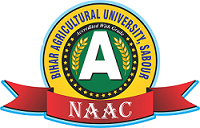Success Stories
Adoption of IPM - Trichoderma Harzianum

Name of the Farmers : Md. Siddique
Address : Village - Naulakha, Block - Kahra, District - Saharsa, State - Bihar, Pin - 852202
Phone and Email : 8877777814
Contribution of Farmers
He started vegetable farming in the village Naulakha of Kahra block with small land holding. He worked hard on the vegetable field which led to good income but was not sufficient to quench his thirst of earning a very handsome amount which made him to increase the land areas of vegetable farming. Gradually he started earning a handsome amount but was very upset to use the chemical pesticides, their cost and health side effect. In the year 2014, he came in contact with Krishi Vigyan Kendra, Agwanpur, Saharsa where the Scientists of the Krishi Vigyan Kendra help him to learn scientific cultivation of vegetables as well as best possible Integrated Pest and disease Management practices to control the insect pest and diseases of vegetable crops with minimization of cost of pesticide application that led to less health hazardous effects.
Description of farm innovation
He took personal interest to use of Trichoderma harzianum formulations in vegetable crops to get rid of the problem such as damping off, wilt and fruit rot disease of many vegetables such as Tomato, Brinjal, chilli, Potato, Cauliflower, Cabbage, cucurbitaceous vegetables etc with the help of scientist from KVK, Saharsa. He used Trichoderma formulations in case of vegetable crops through seed treatment, seedling dip as well as through soil application. Trichoderma formulations were used in seed treatment @ 5 gram per kilogram of the seed, in seedling dip in solutions of 10 gram Trichoderma formulation per litre of water and through soil application mixed and incubated in vermicompost @ 1kilogram per 10 quintal of vermicompost for 7 days in moist conditions.
How this innovation is best suited in difficult (drought or flood) situation ?
IPM solution give better practices to get rid off the increased attack of diseases and insect pest after flood situation. In case of water logged condition chances of attack of soil and root pathogen may increase which can be successfully managed by using the Trichoderma formulations through various delivery methods such as soil and root drenching of the vegetable crops.
Simplicity of innovation: Use of Trichoderma Solutions right from seed treatment, seedling dip to soil treatment with vermicompost, foliar spray of neem oil, plant extract and planting of trap crops around the farm area etc.
Cost effectiveness of the innovations/ practices developed
| Impact Factor | Before Adoption | After Adoption |
|---|---|---|
| Crop / Agricultural Practice | Application of Chemical Pesticide | IPM |
| Yield of crop / product | 1850 qt. of green vegetables / year | 2510 qt. of green vegetables / year |
| Sale Value | 14,05,000 per year | 16,04,500 per year |
| Input Cost | 2,80,250 per year | 1,75,000 per year |
| Labour Cost | 6,00,600 per year | 6,00,600 per year |
| Any Other Cost (transportation etc.) | 1,20,150 per year | 1,24,400 per year |
| Net Saving / Net Profit | 4,04,000 | 6,04,500 |
Recognition for innovations by Government or Non-Government agencies
- Best farmers award by Dainik Jagran Kisan Mela 2017.
- Awarded by Hon'ble Minister of Agriculture & Farmers welfare, Govt. of India at North eastern state regional farm fair 2018 at BAU, Sabour, Bhagalpur, Bihar.
Impact of innovation (Small and large scale)
Trichoderma viridae application enriched with vermicompost and through seed treatment as well as seedling dip would reduce disease incidence as well as improve the soil physical properties which in turn would reduce the dependence on costly chemical fertilizers as well as chemical fungicides.
Hence, this technology would reduce the cost of cultivation in one hand and increase the farmers income on the other. It will also reduce the chemical pesticides residue problem in vegetables like tomato along with other environmental hazards. By exploring the benefits of Trichoderma viridae application through this technology farmers would encouraged to use this bioagent in other vegetable crops like chilli, potato, cabbage, brinjal cauliflower etc.
He also aware other vegetable growers of his village to adopt the IPM practices with low input cost as well as less health hazardous effects. He aware his locality to use of pheromone traps and botanical pesticides such as Neem Oil, Neem leaf extract etc to control the insect pests. He also aware to the farmers about safety measures practices to use chemical pesticides. His dedication and aim may led to develop him as role model for IPM practices in near future.
Sustainability of the Innovation
IPM practices leads to sustainable yield for long time without affecting the human health and environment.
Scalability of Innovation
5-6 % of the locality got awareness from his practices and adopted IPM practices in their vegetable crops.
Action Photographs
Preparation of nursery bed with soil application of vermicompost incubated with Trichoderma harzianum
Tomato seedling treatment with Trichoderma harzianum formulation
Trichoderma harzianum treated seedlings ready to transplant in the field by Md. Siddique
N. B. : Name of Contributors : Md. Nadeem Akhtar, SMS (Plant Pathology) & Er. Vimlesh Kumar Pandey, SMS (Shrill. Engg.)









